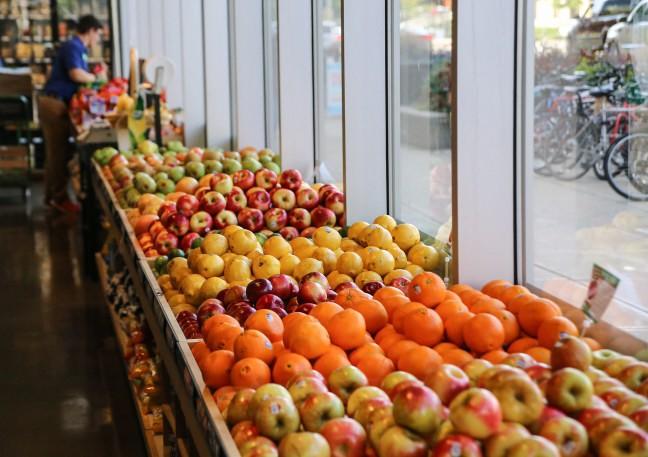Food insecurity, as described by the U.S. Department of Agriculture, is the condition of limited or uncertain access to adequate food. This issue affects nearly 40 million Americans, including 20 percent of students at four-year universities.
While universities do their best to provide financial aid, students in need aren’t often left over with a financial surplus to feed themselves. The Supplemental Nutrition Assistance Program is meant to aid those facing food insecurity by providing food stamps to buy groceries. But while qualified college students may apply, the restrictions on student eligibility are neither advertised nor transparent on the Food and Nutrition Service website. This creates a clear problem, as students who could utilize SNAP benefits don’t know how to access them, leaving their hunger problems left in the dark.
In 2016, per the request of four Democratic senators, the Government Accountability Office conducted a first-of-its-kind study which examined the lack of food access on college campuses. This study cited vital research from the University of Wisconsin’s HOPE Lab. Before the Wisconsin HOPE Lab closed in 2018, founder Sara Goldrick-Rab produced headlining studies about homelessness and hunger among universities. Goldrick-Rab continues her work at Hope Center for College, Community and Justice in Philadelphia.
After looking at 14 four-year and two-year colleges in California, Kentucky, Massachusetts and Michigan, the GAO concluded that “almost 2 million at-risk students who were potentially eligible for SNAP did not report receiving benefits in 2016.” What’s even more concerning is that at nine of the fourteen schools, the report found that some college officials were unfamiliar with or did not fully understand SNAP’s student eligibility rules.
Study finds majority of low-income, SNAP-eligible students do not receive benefits
The study further explains that officials would like FNS to better explain SNAP eligibility for students, but the FNS website has yet to make the issue any clearer. If neither university students nor faculty understand SNAP’s guidelines, then how are the two million hungry students able to take advantage of what the government program is meant to do?
With the addition of challenging college courses, being on the lookout for the next meal can increase a student’s anxiety, depression and isolation. These stressors combined only weaken academic performance. To add to mental health deprecation, food insecure students don’t always feel comfortable reaching out for help.
Lydia Zepeda, a UW consumer science professor, conducted a study called “Hiding Hunger” to find out why people who qualify for food banks choose not to use them. What Zepeda found was that students felt they couldn’t share their problems with peers or faculty because they felt ashamed. For this reason, food insecurity on campuses goes highly unreported and subsequently unnoticed.
Fortunately, UW has a plethora of services for food-insecure students to utilize. The Campus Kitchens Project and Food Recovery Network-Free Student Lunches use surplus food from the dining hall and serve buffet-style meals open to all students, free of charge. The Lutheran Campus Center Lunch and Slow Food UW also set up low-cost meals for any student to enjoy. When in season, UW Campus Food Shed and F.H. King’s Harvest Handouts provide fresh produce. Students have even taken it upon themselves to run and serve Open Seat, a student-produced food pantry. There are also additional resources, such as Badger Fare, Dial 2-1-1, and the Dean of Students Office, which provide temporary, yet helpful aid.
‘I can’t eat!’ UW students, organizations reckon with ending hunger at UW
While these organizations wipe away a tremendous amount of burden on students, they require a lot of outreach on the student’s part. Additionally, there are certain time restraints surrounding them, introducing potential time conflicts.
For those who really need it, the most permanent and reliable support is food stamps. In fact, this October, the Flamingo Run inside Gordon Dining Hall started to accept SNAP as payment for certain items. But it would be hard to use SNAP if one didn’t know they were eligible. UW faculty and students have done an amazing job creating programs for students in need. The next step is to create more awareness around helping students access SNAP benefits.
The UW financial aid office hosts workshops open for all students. The topics vary each month, ranging from Free Application for Federal Student Aid help to mental health awareness. Perhaps it’s time to put something else on the agenda: eligibility for SNAP and other campus resources for students facing food insecurity.
Joselyn Diaz-Valdes, a senior financial aid advisor at UW, explained that since there are so many layers of bureaucracy involved to navigate the SNAP application, she recommends visiting either University Health Services or the financial aid office, where faculty members will happily explain the process to a student.
“Having another person sit down with you can really help,” Diaz-Valdes said.
As for better awareness of this issue around campus, Diaz-Valdes says that there are “a lot of things that could be better advertised.” In reference to food insecurity and confusing SNAP guidelines, she said it needs to be a “campus wide effort.”
It’s time that all faculty members and students become aware of just how prevalent food insecurity is on campus. That effort can only be made through widespread, continuous knowledge and understanding of this issue.
The lack of transparency on SNAP’s student application is highly inhibiting those who could benefit most from it. Without FNS stepping up and promoting its service to college students in need, many bright and hopeful students could go without meals, impacting their education and lives, and in turn, impacting the lives of everyone around them.
Keagan Schlosser ([email protected]) is a freshman majoring in communications.





















